
Wallace Fitzgerald Beery was an American film and stage actor. He is best known for his portrayal of Bill in Min and Bill (1930) opposite Marie Dressler, as General Director Preysing in Grand Hotel (1932), as the pirate Long John Silver in Treasure Island (1934), as Pancho Villa in Viva Villa! (1934), and his title role in The Champ (1931), for which he won the Academy Award for Best Actor. Beery appeared in some 250 films during a 36-year career. His contract with Metro-Goldwyn-Mayer stipulated in 1932 that he would be paid $1 more than any other contract player at the studio. This made Beery the highest-paid film actor in the world during the early 1930s. He was the brother of actor Noah Beery and uncle of actor Noah Beery Jr.
Bertrand Russell Berns, also known as Bert Russell and (occasionally) Russell Byrd, was an American songwriter and record producer of the 1960s. His songwriting credits include "Twist and Shout", "Piece of My Heart", "Here Comes the Night", "Hang on Sloopy", "Cry to Me" and "Everybody Needs Somebody to Love", and his productions include "Baby, Please Don't Go", "Brown Eyed Girl" and "Under the Boardwalk".
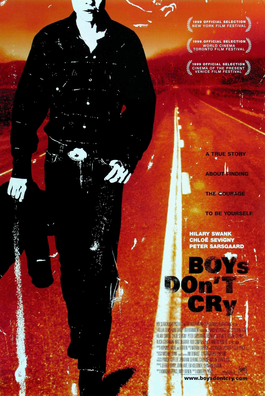
Boys Don't Cry is a 1999 American biographical film directed by Kimberly Peirce, and co-written by Peirce and Andy Bienen. The film is a dramatization of the real-life story of Brandon Teena, an American trans man who attempts to find himself and love in Nebraska but falls victim to a brutal hate crime perpetrated by two male acquaintances. The film co-stars Chloë Sevigny as Brandon's girlfriend, Lana Tisdel.

Cry Wolf is a 2005 American slasher film directed by Jeff Wadlow and co-written by Wadlow and Beau Bauman. The film stars Julian Morris, Jon Bon Jovi, Lindy Booth, Jared Padalecki and Gary Cole. It follows a group of teenagers at a remote elite boarding school who play a group parlor game called Cry Wolf by spreading rumors of a serial killer nicknamed "The Wolf". This leads to the discovery of a young woman's body on campus, putting the lives of those who played the game in legitimate danger.
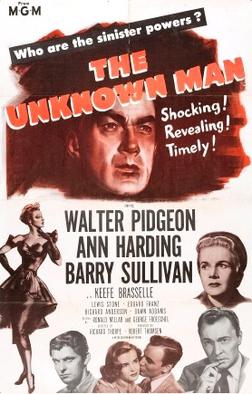
The Unknown Man is a 1951 American courtroom drama film directed by Richard Thorpe and starring Walter Pidgeon, Ann Harding and Barry Sullivan.
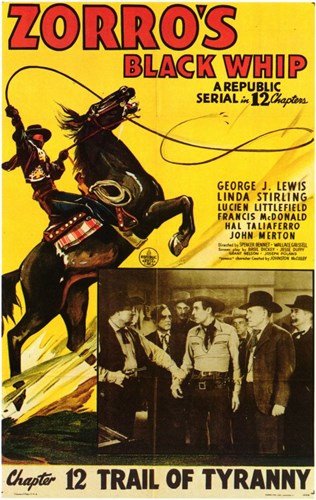
Zorro's Black Whip is a 1944 12-chapter film serial by Republic Pictures starring Linda Stirling. The film was made after the 1940 20th Century-Fox remake of The Mark of Zorro in order to capitalize on it. Republic was not able to use the character of Zorro himself, however, and despite the title, the hero(ine) is called The Black Whip throughout.
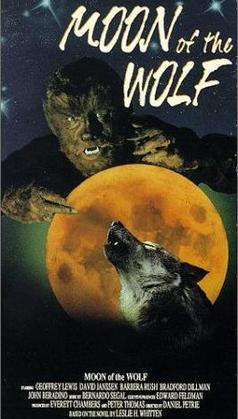
Moon of the Wolf is an American TV movie broadcast on September 26, 1972 on ABC Movie of the Week. It stars David Janssen, Barbara Rush, Geoffrey Lewis and Bradford Dillman, with a script by Alvin Sapinsley. The film was directed by Daniel Petrie and filmed on location in Burnside, Louisiana. All of the downtown footage was from Clinton, Louisiana.
To cry wolf means to raise a false alarm, derived from the fable The Boy Who Cried Wolf.

Ev'ry Day of My Life was Bobby Vinton's twenty-second studio album, released in 1972. The title track and "I'll Make You My Baby" were album's two singles, the latter of which failed to make the Billboard Hot 100. Cover versions include "Misty Blue", "I Won't Cry Anymore", "Just a Little Lovin' ", "I'll Make You My Baby" and "And I Love You So".

Ralph Percy Lewis was an American actor of the silent film era.

Barbara French Read, also known as Barbara Reed, was a Canadian-American film actress of the 1930s and 1940s, who appeared in 21 films during her career.
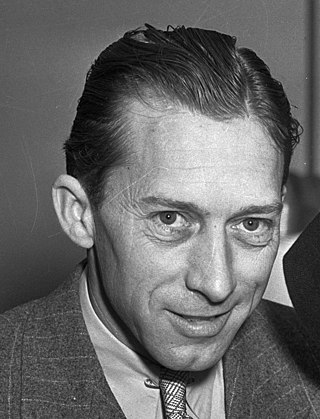
Lewis Ransom Foster was an American screenwriter, film/television director, and film/television producer. He directed and wrote over one hundred films and television series between 1926 and 1960.

A Cry from the Streets is a 1958 British drama film directed by Lewis Gilbert, starring Max Bygraves and Barbara Murray. It was written by Vernon Harris based on the 1957 novel The Friend in Need by Elizabeth Coxhead.

Cry Wolf is a 1947 American mystery film noir directed by Peter Godfrey and starring Errol Flynn, Barbara Stanwyck and Geraldine Brooks. It was produced and distributed by Warner Bros. It is based on the 1945 novel of the same name by Marjorie Carleton.

Richard Jessup was an American author and screenwriter. He also wrote under the name of Richard Telfair.
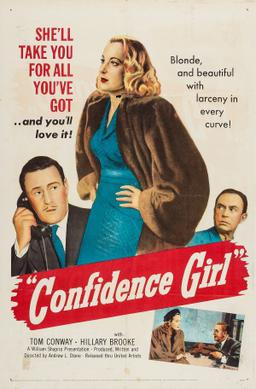
Confidence Girl is a 1952 American crime film written and directed by Andrew L. Stone. The film stars Tom Conway, Hillary Brooke, Eddie Marr, John Gallaudet, Jack Kruschen, Dan Riss and Walter Kingsford. It was released on June 20, 1952 by United Artists.

Robert Gleckler was an American film and stage actor who appeared in nearly 60 movies between 1927 until his death in 1939. He was cast for the role of Jonas Wilkerson, overseer of the slaves at Tara in Gone with the Wind, but died during the filming and was replaced with Victor Jory.

Lone Star Ranger is a 1942 American Western film directed by James Tinling and written by William Conselman Jr., Irving Cummings Jr. and George Kane. The film stars John Kimbrough, Sheila Ryan, Jonathan Hale, William Farnum, Truman Bradley and George E. Stone. The film was released on March 20, 1942, by 20th Century-Fox. It was the fourth and final film adaptation of the novel of the same name by Zane Grey. William Farnum had appeared in the first adaptation of the novel, a 1919 silent film of the same name. In that version he had starred in the leading role, which was named "Steele", who avenged the murder of Major McNeil, which is the role he plays in this film.

The Boys Who Cried Wolf, also known as The Shepherd, is a 2015 South Korean crime thriller drama film. Written and directed by Kim Jin-hwang in his first feature-length for his Korean Academy of Film Arts (KAFA)'s final year undergraduate film project, it depicts how a former stage actor becomes involved in a murder case.

















